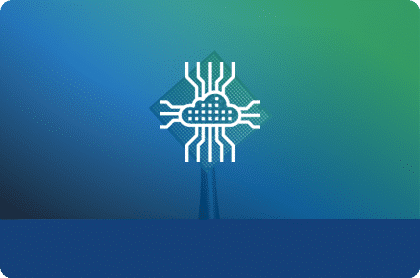BLOGS
How will AI Impact The Future Of Accountancy?

Artificial Intelligence (AI) is an expression that is currently cropping up everywhere we look, hear and read.
The term “AI ” was first coined by John McCarthy during the 1956 Dartmouth Summer Research Project and is defined by Oxford English Dictionary as: “the theory and development of computer systems able to perform tasks normally requiring human intelligence, such as visual perception, speech recognition, decision-making, and translation between languages.”
Most recently its capability has been recognised in the health environment with experts and analysts suggesting that it may be as accurate if not more accurate in identifying the presence or otherwise of breast cancer through processing mammograms. Likewise, the “loyalty card” schemes originally designed to hook consumers to a supplier were suddenly recognised as gathering meaningful data about consumer spending trends, preferences and locations.
Here we look at just how it is affecting the accountancy profession both from an internal perspective and an external one – that is creating the financials, auditing them and analysing the same. AI can be used and is used in each stage particularly in companies that have embraced the technology. It is part of the boom in technologies across professions and industries and just like other such technologies it is engaging that workload, which is tedious, error prone and even specialized.
As a concept, AI has been around for a while and was conceived with a view to utilising and maximising the vast amounts of data and information held in computer storage by companies – both historical data and live records. In the scientific arena, AI has been present for as long as electronic computers and though existing under other nomenclatures until recently it has evolved exponentially and now sits poised to assist human decision making.
The robotic nature of AI fills the world, perhaps including you, with anxiety and concern that everything we do or have done for us will be based on an algorithm that itself adapts and mutates to reflect its own ML (machine learning) experiences. The old adage still pervades though – GIGO (garbage in garbage out) – the power of ML is only as good as the data it processes – if the data is incomplete, insufficient, inaccurate or biased then any analysis will reflect this.
AI brings a new dimension to normal input and output processing by allowing computer programmes to make predictions and adapt how they respond in certain situations – in the same way humans do. In professions that require rote tasks such as accounting and law or as we have seen even health, AI is assisting humans to reach the right decision and, in some cases, even using its own “eyes and ears” to make those decisions.
AI splits neatly into two defined areas:-
WEAK or NARROW AI
This is analysis and decision making based on a set of rules that define how it accomplishes a particular task to solve a specific problem. Perfect for rote work and managing quite complex situations its narrowness is exposed by simply engaging it in a conversation or exercise beyond its boundaries – it is stumped! It is best described as working intelligently rather than being intelligent. The tasks it is capable of tend to be few but it has all the cognitive function of a human.
STRONG or FULL AI
Here artificial intelligence has much more powerful capabilities and functionality being able to make the same decisions execute the same actions as the human brain – having understanding and consciousness. The issue here is that it is very difficult to measure success or set boundaries with such an “organic” intelligence making “Weak AI” the preferred choice for most instances as it accomplishes tasks with efficiency by focusing only on that task. Artificial Intelligence is the intelligence which you see in machines and not humans. Strong AI has the potential to mutate into devices that use cognitive functions to identify and solve problems just like humans or in most cases solve them more swiftly and more accurately. It has successfully managed to create a significant impact by doing what has been thought impossible.
Where does AI fit into Accountancy?
An accountant is a professional with particular skills and a very valuable role as an advisor to the business or its clients. Such a role is much more important than that of number cruncher or pen pusher. Utilising AI and, where the human touch is not needed, leaving the numbers to the robots frees up resource to let accountants spend more time in business management roles where they can strengthen client relationships and usefully apply that human touch.
AI is already being used to great effect in the Finance Industry where it is employed to assist in and make decisions on –
- Risk management
- Fraud detection
- Advisory services
- Trading
- Managing finances
Some of those areas are relevant to every business and fall in the lap of the accountancy function.
How will it change the accounting industry?
Those who choose to partner with and engage positively with AI will now rethink how they oversee mundane services performed by junior staff – both in house and externally when auditing - the saved time and resource allowing those more qualified financial professionals to be more available, more informed and better positioned as advisors. The opportunity embedded in the current digital transformation of finance and accounting is allowing people and AI to work in unison and rely on each other to nurture and contribute in the areas where their strengths exist. The number crunching with its mind-numbing monotony is taken care of by the cognitive functions of AI thus releasing the accounting professionals to tackle the tasks that their cognitive engines are geared for.
In summary, Machine Learning (ML) has proven that gathering, collating and analysing data and making decisions and completing tasks based on that data is no longer a job for the human brain. AI continues to prove that machines can do it just as well if not better, and if we let them spot the patterns and provide us with insights on how to utilize them effectively, we and our businesses will benefit the more from it.









